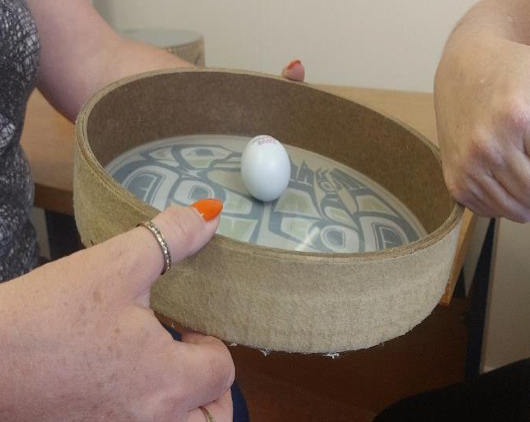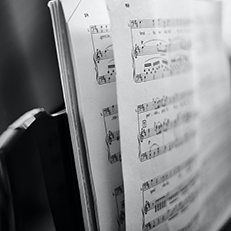Music
Music can change our emotional state and influence our behaviour
These are strategies, activities, approaches and practices on using music to support emotional and mental well-being. Scroll down to read about the benefits of music.

Choose a collection identifier from the selection below.
-
Create a collection
-
Bear
-
Bee
-
Bull
-
Butterfly
-
Cherry
-
Daisy
-
Deer
-
Dolphin
-
Duck
-
Fish
-
Horse
-
Hummingbird
-
Kangaroo
-
Kingfisher
-
Ladybird
-
Leopard
-
Lotus Flower
-
Panda
-
Peacock
-
Rabbit
-
Rose
-
Shark
-
Squirrel
-
Stingray
-
Strawberry
-
Swan
-
Tiger
-
Blue
-
Green
-
Orange
-
Pink
-
Purple
-
Turquoise
-
Yellow

Choose a collection identifier from the selection below.
-
Create a collection
-
Bear
-
Bee
-
Bull
-
Butterfly
-
Cherry
-
Daisy
-
Deer
-
Dolphin
-
Duck
-
Fish
-
Horse
-
Hummingbird
-
Kangaroo
-
Kingfisher
-
Ladybird
-
Leopard
-
Lotus Flower
-
Panda
-
Peacock
-
Rabbit
-
Rose
-
Shark
-
Squirrel
-
Stingray
-
Strawberry
-
Swan
-
Tiger
-
Blue
-
Green
-
Orange
-
Pink
-
Purple
-
Turquoise
-
Yellow

Choose a collection identifier from the selection below.
-
Create a collection
-
Bear
-
Bee
-
Bull
-
Butterfly
-
Cherry
-
Daisy
-
Deer
-
Dolphin
-
Duck
-
Fish
-
Horse
-
Hummingbird
-
Kangaroo
-
Kingfisher
-
Ladybird
-
Leopard
-
Lotus Flower
-
Panda
-
Peacock
-
Rabbit
-
Rose
-
Shark
-
Squirrel
-
Stingray
-
Strawberry
-
Swan
-
Tiger
-
Blue
-
Green
-
Orange
-
Pink
-
Purple
-
Turquoise
-
Yellow

Choose a collection identifier from the selection below.
-
Create a collection
-
Bear
-
Bee
-
Bull
-
Butterfly
-
Cherry
-
Daisy
-
Deer
-
Dolphin
-
Duck
-
Fish
-
Horse
-
Hummingbird
-
Kangaroo
-
Kingfisher
-
Ladybird
-
Leopard
-
Lotus Flower
-
Panda
-
Peacock
-
Rabbit
-
Rose
-
Shark
-
Squirrel
-
Stingray
-
Strawberry
-
Swan
-
Tiger
-
Blue
-
Green
-
Orange
-
Pink
-
Purple
-
Turquoise
-
Yellow

Choose a collection identifier from the selection below.
-
Create a collection
-
Bear
-
Bee
-
Bull
-
Butterfly
-
Cherry
-
Daisy
-
Deer
-
Dolphin
-
Duck
-
Fish
-
Horse
-
Hummingbird
-
Kangaroo
-
Kingfisher
-
Ladybird
-
Leopard
-
Lotus Flower
-
Panda
-
Peacock
-
Rabbit
-
Rose
-
Shark
-
Squirrel
-
Stingray
-
Strawberry
-
Swan
-
Tiger
-
Blue
-
Green
-
Orange
-
Pink
-
Purple
-
Turquoise
-
Yellow

Choose a collection identifier from the selection below.
-
Create a collection
-
Bear
-
Bee
-
Bull
-
Butterfly
-
Cherry
-
Daisy
-
Deer
-
Dolphin
-
Duck
-
Fish
-
Horse
-
Hummingbird
-
Kangaroo
-
Kingfisher
-
Ladybird
-
Leopard
-
Lotus Flower
-
Panda
-
Peacock
-
Rabbit
-
Rose
-
Shark
-
Squirrel
-
Stingray
-
Strawberry
-
Swan
-
Tiger
-
Blue
-
Green
-
Orange
-
Pink
-
Purple
-
Turquoise
-
Yellow

Choose a collection identifier from the selection below.
-
Create a collection
-
Bear
-
Bee
-
Bull
-
Butterfly
-
Cherry
-
Daisy
-
Deer
-
Dolphin
-
Duck
-
Fish
-
Horse
-
Hummingbird
-
Kangaroo
-
Kingfisher
-
Ladybird
-
Leopard
-
Lotus Flower
-
Panda
-
Peacock
-
Rabbit
-
Rose
-
Shark
-
Squirrel
-
Stingray
-
Strawberry
-
Swan
-
Tiger
-
Blue
-
Green
-
Orange
-
Pink
-
Purple
-
Turquoise
-
Yellow

Choose a collection identifier from the selection below.
-
Create a collection
-
Bear
-
Bee
-
Bull
-
Butterfly
-
Cherry
-
Daisy
-
Deer
-
Dolphin
-
Duck
-
Fish
-
Horse
-
Hummingbird
-
Kangaroo
-
Kingfisher
-
Ladybird
-
Leopard
-
Lotus Flower
-
Panda
-
Peacock
-
Rabbit
-
Rose
-
Shark
-
Squirrel
-
Stingray
-
Strawberry
-
Swan
-
Tiger
-
Blue
-
Green
-
Orange
-
Pink
-
Purple
-
Turquoise
-
Yellow

Are you sure you'd like to remove this collection?
All associated data will be deleted.

Are you sure you'd like to add this collection?
Music directly links to our emotions, feelings and behaviour
Music is essential in many people’s lives. It has been a feature of every known human society and culture throughout the course of human history, and is thought to have predated language.
Music can be beneficial to our well-being because it can:
- Trigger the release of natural feel good neurochemicals and stimulate the brain’s reward and pleasure centres
- Help to connect with and regulate our emotions
- Connect and unite us with others
- Improve learning and memory
- Lower anxiety
- Improve symptoms of depression
- Decrease fatigue
- Help manage and alleviate pain
Experience of music is subjective, affecting people in varying ways. Music can be experienced positively and can enhance our well-being and quality of life. To ensure that music has a positive effect we need to work out individual preferences and what impact different music has at different times. In this way music can be used in the most emotionally supportive and enriching way. For example, we may enjoy listening to a particular piece of music when we feel good, but the same piece of music may cause distress if played when we are feeling down.
Music can powerfully communicate emotions, even if we cannot make out the meaning of words being sung. Try listening to a classical piece or music with vocals in a language you don’t understand and see if you can detect the mood of the piece and notice whether and how this affects your own emotional state.
Putting the radio on, or playing random music on shuffle may not always be the best approach. Rather, mindfully selecting what songs or playlists to listen to is likely to be more beneficial.
Music is an art form and a cultural activity. It can be defined as organised vocal and or instrumental sound that is given pitch. Sound is made up of vibrations that transmit as acoustic waves. In human physiology and psychology, sound is the reception of vibrations through acoustic waves and their perception by the brain. The brain processes sound in different areas of the brain, including: the sensory cortex, the nucleus accumbens, amygdala, and cerebellum, and the auditory cortex. Each of these parts plays a key role in how people, both with and without hearing, experience music.
It is important to be aware of this because people who have a hearing impairment can appreciate and enjoy music and benefit from having it in their lives just as much as those who have full hearing. The emotional connection that people experience with music can also be experienced by people with a hearing impairment. It may be more likely that the recognition of music is from bass notes or the beat of the song rather than from the melody, which is usually higher pitched.
Music is much more than entertainment. Through music we can express and modulate our emotions, change how we feel and how we behave. Music can help to wake us up, energise, stimulate and motivate us. It can make us feel happiness, joy and excitement. It can be calming and provide an outlet for emotions such as sadness. Sometimes music may allow you to sit with a mood, explore it, and perhaps better understand it, but not feel worse from doing so. Music can also be used for venting frustration and for evoking memories and nostalgia. Listening to music can help us cope in difficult times. It can be comforting and can express or reflect how we are feeling, allow us to feel a sense of companionship and to feel connected with the world around us. Music is so readily available, easily accessible and portable that it can be like a constant companion, accompanying us throughout the day in the good and the not so good times.
I think music in itself is healing. It’s an explosive expression of humanity. It’s something we are all touched by.
Billy Joel
Music produces a kind of pleasure which human nature cannot do without
Confucius

We may not always be consciously aware of the impact music has on us, or of our decisions about when and what to listen to or play. Indeed, the decision about what to listen to may be driven by emotions that we are not immediately aware of. Some examples of how music is purposefully used, and the impact that it may have on our emotions and behaviour are:
- Singing lullabies to soothe babies
- Playing classical music or jazz to signal relaxation at the end of the day
- Complementing a movie with a well-written, emotion enhancing underscore
- Accompanying an advert with a catchy tune or beat
- Blasting loud music from a store to encourage greater spending
- Playing lively music at a party to get people up and dancing
The power of music to integrate and cure … is quite fundamental. It is the profoundest non-chemical medication.
Oliver Sacks
















